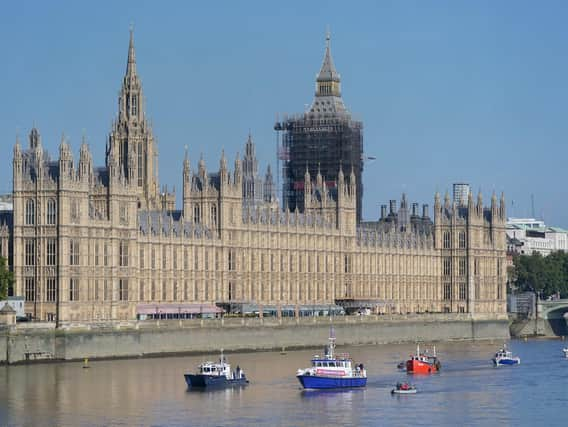Nurses and teachers are new victims of unscrupulous umbrella firms - Greg Wright


That’s why submissions from the Low Incomes Tax Reform Group (LITRG) – an initiative which provides a voice for low-paid workers, pensioners, migrants, students, disabled people and carers – must be near the top of Rishi Sunak’s in-tray.
In particular, Mr Sunak would be well-advised to study the LITRG’s paper which calls on him to pause and review activity around the loan charge, a controversial policy which has left thousands of people on modest incomes with large and unexpected tax bills.
Advertisement
Hide AdAdvertisement
Hide AdThe LITRG’s submission in connection with the Budget states that “a diverse population of workers” is affected by the loan charge, including those who were unknowingly put into a loan scheme by their agency or umbrella company.
There is evidence that the agency or umbrella placed workers into these schemes so they could gain an advantage in the labour market, including taking on lower-paid agency nurses, teachers and construction workers, according to the LITRG.
The LITRG submission continues: “The fact there are still such people being paid via disguised remuneration schemes, often by umbrella companies which are not even attempting to hide what they are doing, indicates that HMRC’s stance (which has driven their approach throughout the loan charge) that ‘individuals are responsible for their own tax affairs’, is an oversimplification.”
In December 2019, the Government announced a package of changes to the loan charge in response to Sir Amyas Morse’s review.
Advertisement
Hide AdAdvertisement
Hide AdThe LITRG submission added: “The main changes coming out of the Morse review, included that loans entered into on or after December 9, 2010 and up to 2016/17, where the relevant taxpayer made reasonable disclosure of their scheme usage to HMRC and where HMRC did not open an investigation, should be out of scope of the loan charge and that any voluntary restitution of such, should be waived/refunded.”
The LITRG concludes that these changes had the potential to help those affected by the loan charge, “however we are concerned that they have not achieved their potential because the bar has been set too high in terms of what counts as reasonable disclosure”.
By pausing activity and taking a fresh look at the loan charge, the LITRG believes HMRC will have the opportunity to seek a “deeper understanding” of the different types of people involved, and provide extra time for those that can comply, to comply, without their problems snowballing.
Pausing the activity would also allow HMRC and the Government the opportunity to consider the fact that some people are now being asked to repay the loans, LITRG said.
Advertisement
Hide AdAdvertisement
Hide AdSo far, 137 Parliamentarians have signed an open letter to the Prime Minister and Chancellor calling for a fair resolution to the loan charge, because critics fear it will cause thousands of bankruptcies.
Over the summer, Mr Sunak told The Yorkshire Post that the loan charge, which was designed to tackle tax avoidance schemes, had “already been through” a lot of scrutiny and been amended and adjusted.
HMRC has said it is committed to working with taxpayers to enter manageable payment plans to spread their tax liability. HMRC believes it is right that it continues to tackle these type of avoidance schemes because they deprive public services of funding.
The economic case for a pause and “fair resolution” is growing. The LITRG said its research on the loan charge drew heavily on the work of the charity TaxAid, which is trying to help increasing numbers of individuals who state they are struggling to comply with their loan charge obligations.
Advertisement
Hide AdAdvertisement
Hide AdAt the same time, unscrupulous umbrella firms seek new victims, often on low incomes, in plain sight.
A review could find a new way to resolve outstanding cases and provide a shot in the arm for long overdue action to tame the rogue umbrella firms at the heart of this scandal.
Support The Yorkshire Post and become a subscriber today. Your subscription will help us to continue to bring quality news to the people of Yorkshire. In return, you'll see fewer ads on site, get free access to our app and receive exclusive members-only offers. Click here to subscribe.